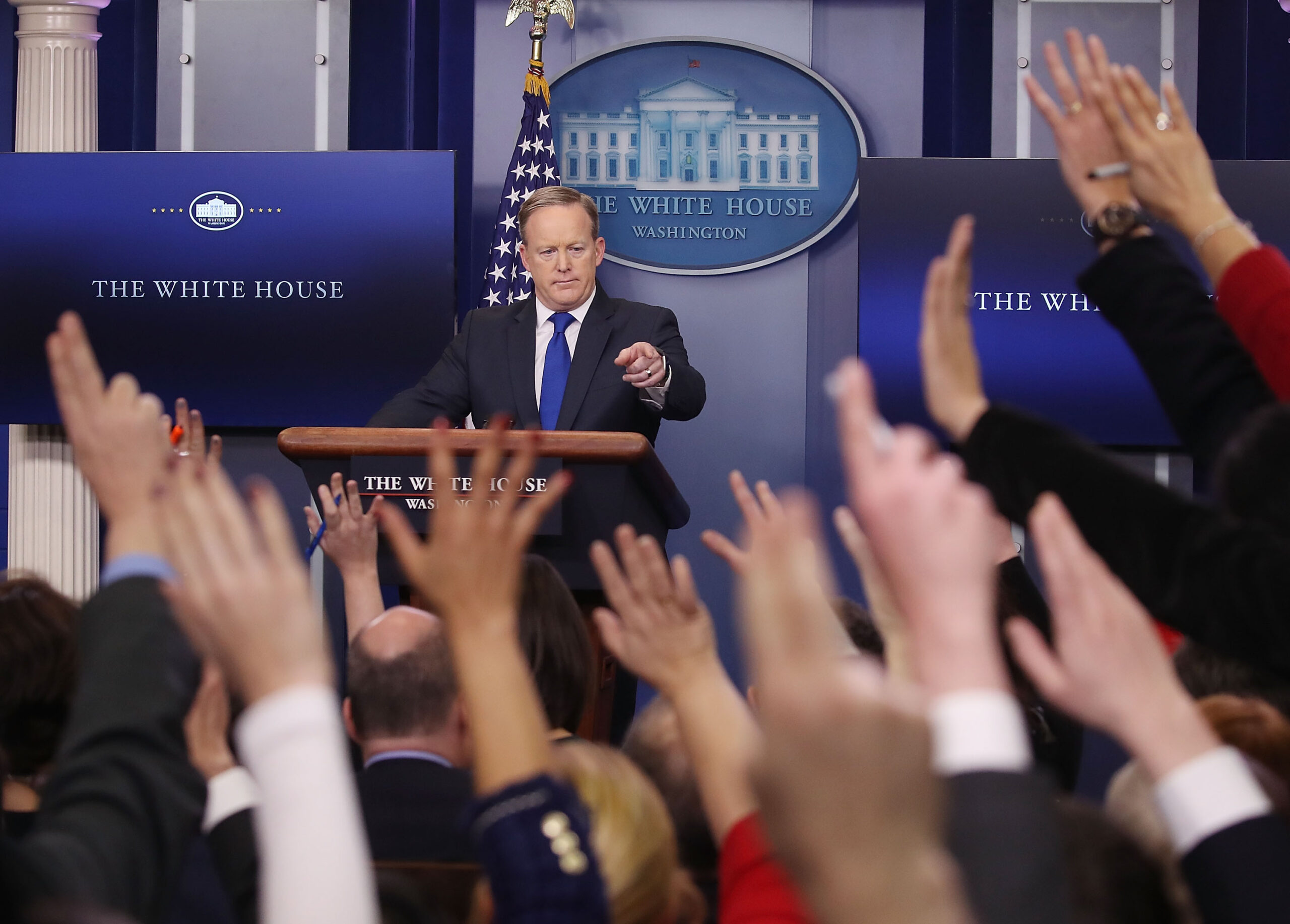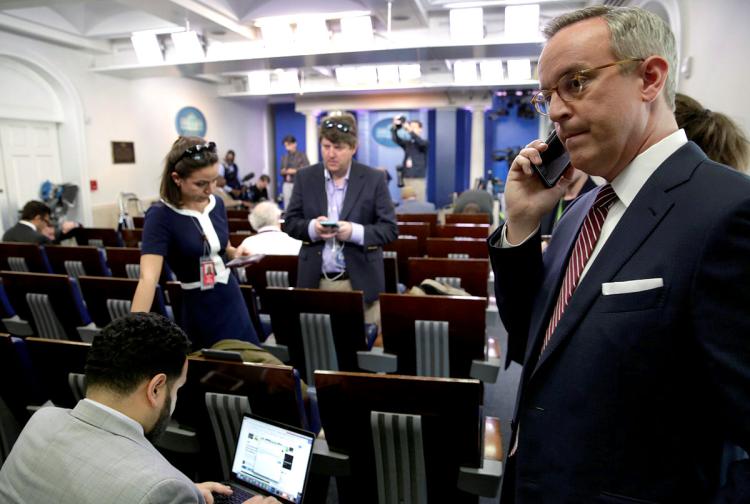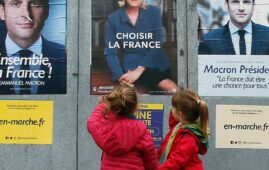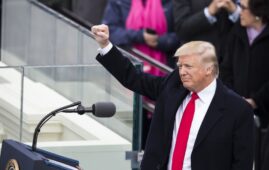

“Nothing like this has ever happened at the White House in our long history of covering multiple administrations of different parties,” said New York Times editor Dean Baquet.


The White House blocked several news outlets from attending a closed-door briefing Friday afternoon with press secretary Sean Spicer, a decision that drew strong rebukes from news organizations and may only heighten tensions between the press corps and the administration.
The New York Times and CNN, both of which have reported critically on the administration and are frequent targets of President Donald Trump, were prohibited from attending. The Huffington Post was also denied entry.
Both the Associated Press and Time magazine, which were allowed to enter, boycotted out of solidarity with those news organizations kept out.


Spicer said prior to the start of the administration that the White House may skip televised daily briefings in favor of an off-camera briefing or gaggle with reporters. But Spicer has continued doing televised daily briefings except when traveling, making Friday’s decision an unusual one that led to frustration among journalists kept out.
“Nothing like this has ever happened at the White House in our long history of covering multiple administrations of different parties,” Times executive editor Dean Baquet said in a statement. “We strongly protest the exclusion of The New York Times and the other news organizations. Free media access to a transparent government is obviously of crucial national interest.”
Trump’s presidential campaign blacklisted nearly a dozen outlets through part of the 2016 election. However, Spicer said in December the Trump White House would not kick news organizations out of the briefing room over critical coverage. During a panel discussion that month with Politico, he said you can’t ban news organizations from the White House. “That’s what makes a democracy a democracy versus a dictatorship.”
“We hope that the White House will recognize the vital importance of including all credentialed media outlets when briefing reporters on matters of undeniable public interest,” Polgreen said. BuzzFeed editor-in-chief Ben Smith also weighed in on his outlet being left out of the briefing.
“While we strongly object to the White House’s apparent attempt to punish news outlets whose coverage it does not like, we won’t let these latest antics distract us from continuing to cover this administration fairly and aggressively,” he said. Though a reporter from the Wall Street Journal attended, the paper said later it would not do so again under such circumstances.
“The Wall Street Journal strongly objects to the White House’s decision to bar certain media outlets from today’s gaggle,” a Journal spokesman said. “Had we known at the time, we would not have participated and we will not participate in such closed briefings in the future.”


“The commission calls on everyone ....


Trump officials allegedly copied and removed.
Leave a Comment